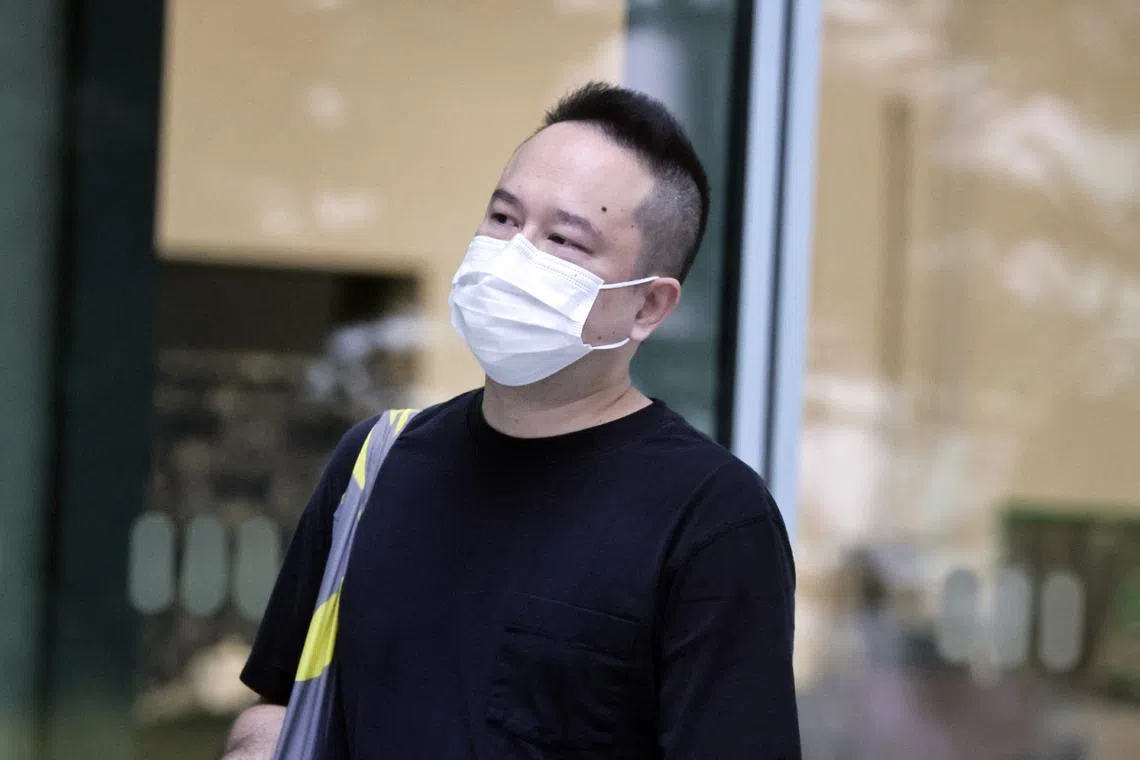- Joined
- Aug 20, 2022
- Messages
- 20,871
- Points
- 113
Ex-lawyer convicted of cheating, forgery charges involving more than $8 million

On Aug 8, former lawyer Then Feng was convicted of all 16 charges he was fighting.
ST PHOTO: KELVIN CHNG
SINGAPORE – A former lawyer has been convicted over tricking a director of two companies into disbursing more than $8 million into his own company following a trial.
On Aug 8, Then Feng, 43, was convicted of all 16 charges he was fighting. These include cheating, forgery and charges under the Corruption, Drug Trafficking and Other Serious Crimes (Confiscation of Benefits) Act.
Then, who is out on $450,000 bail, will return to court on Oct 24 to give his mitigation plea. He will also be sentenced on the same day.
The crux of the trial was to determine if Then had misrepresented to Mr Andrew Ling Hui, the director of Providence Asset Management and 5 and 2, into believing that Mr Ling was procuring services from and dealing with Walkers, an international law firm.
The lawyer was then employed by Walkers and had learnt that his firm was going to launch an affiliated corporate and fiduciary services firm in 2015 named Walkers Professional Services in the Cayman Islands.
In June 2015, Then incorporated a company of the same name in the British Virgin Islands without his company’s knowledge.
He admitted to basing the entire branding of his firm, from the name to its logo, on that of Walkers’ business – but insisted that he had set up the firm at the time without any intention of it being associated with Walkers.
Some time in 2018, Then told Mr Ling that Walkers could provide escrow services for cryptocurrency transactions. He added that those services would be done with a bank account under Walkers Professional Services.
The prosecution’s closing submissions pointed out that Mr Ling had believed the services would be rendered to him by Walkers, the international law firm, and not Then’s personal company.
In April 2018, Then and Mr Ling agreed to buy a foreign bank together.
Under the agreement, Then told Mr Ling that Walkers would provide escrow services for the transaction, and that monies provided for the acquisition would be held in a bank account controlled by Walkers.
To that end, Mr Ling arranged for various payments amounting to more than $8 million to be made to what he believed was Walkers’ bank accounts, but he had unknowingly wired the money to Then’s company.
Deputy Public Prosecutor (DPP) Tan Pei Wei said Then had also given Mr Ling documents with a logo that is “indiscernible” from the logo used by Walkers.
In his defence, Then said he had incorporated a firm named after Walkers’ business due to his “quirky key sense of humour”, and it was done in “good fun”.
He added that he had meant for the branding of his company to be a “tongue-in-cheek insider thing”, and that the company would only be known to his friends and close business associates.
But the prosecution said Then had got to know Mr Ling only two months prior to telling him about the firm, and that Mr Ling could scarcely be considered Then’s close friend or business partner at the point.
DPP Tan said it was also unbelievable that an accomplished corporate lawyer, such as Then, would have found the arrangement amusing as it was fraught with risk for both himself and his firm.
To that end, she pointed out that Then had concealed the existence of his identically named firm from his company, as he was on the verge of being made partner at the law firm and was aware of the problems his incorporated company could pose to him.
In fact, Then was later terminated from the law firm after his incorporated company was discovered by another partner at Walkers.
The prosecution added that while the defence had sought to impugn Mr Ling’s credibility, Mr Ling had been candid and forthright on the stand, and consistent with the evidence he had provided in terms of the communication between the pair.
On the other hand, DPP Tan said Then had been “dishonest, evasive and disingenuous” on the stand. His explanations concerning the use of an identical name and logo for his own firm with Walkers’ business was also described as being “fundamentally absurd”.
If found guilty of forgery for the purpose of cheating, Then can be jailed for up to 10 years and fined for each charge.
He can receive the same punishment for each count of cheating and dishonestly inducing a delivery of property.
He can be jailed for up to 10 years, fined up to $500,000 or both for each charge under the Corruption, Drug Trafficking and Other Serious Crimes (Confiscation of Benefits) Act.

